
Bad day at the office for Ronan Snow as he repairs the sieves on his John Deere combine this week.
Swords Co Dublin
Ronan completed his winter barley harvest this week having started on 24 July and he is pleased with how his crops have performed. Despite some BYDV pressure, his yields are running from 3.5t/ac to 4t/ac. Other barley crops in the area, however, have suffered significantly from BYDV infection, with yields of 2-2.5t/ac, Ronan said.
He explained that his Cassia crops are coming in at 4t/ac, with Tower at 3.6t/ac. His Carnival yielded 3.5t/ac but recorded a specific weight of 70 KPH. Moisture content is generally coming in at 16% but the straw is taking a couple of days to mature. Straw and grain yields are generally good but this will all be needed. “Between a substantially lower grain price and lower straw prices, we could easily be back up to €300/ac compared to last year,” Ronan said.
His harvest has been relatively smooth so far, with 19.3mm rainfall over the past month. He generally unloads directly into waiting lorries in the field and the grain is brought straight to a Drummonds branch. Ronan’s winter oilseed rape was desiccated with Roundup Max (2kg/ha) on July 15 and he also added in Guardicon pod sticker (1.25l/ha). His winter wheat crops are around two weeks from harvest and have good potential. The timing of the wheat harvest will be on par with average.
Around 25% of his spring barley crops have lodged due to some heavy showers two weekends ago. There are a lot of spring crops lodged in his area. His spring wheat crop received a head spray a number of weeks ago consisting of Amistar Opti (1l/ha) and Fezan (0.8l/ha). Wild oats are also a particular problem this year.
Potato harvest under way
Ronan is digging his Kingsman early potato crop as the market requires them. Tuber numbers are back but are filling well. He notices some scab appearing on his Kerr’s Pink crops, most likely a result of the dry weather. He will wait to see what rain comes this week before deciding whether or not to start irrigating again. Blight pressure is low and he is applying a fungicide every 10 days.
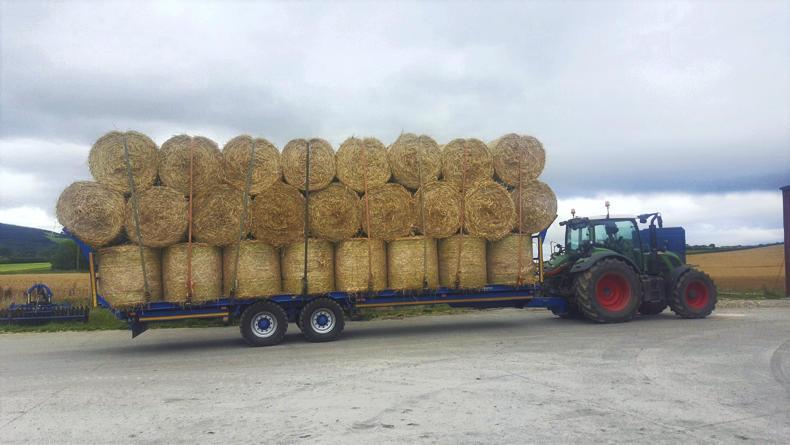
David Moody moving straw this week in Donegal. Around half of his harvested crop is baled.
St Johnston,
Co Donegal
It has been a stop-start harvest so far for David, who started his winter barley harvest on 24 July. Light showers over the past month have amounted to 74mm and have prevented him from getting a good run at the harvest. That said, he should finish the bulk of his winter barley by the end of the week if he gets the right weather window.
Yields have been good, between 3.95t/ac and 4.15t/ac with moistures of between 16% and 19%. Straw yields are reasonable but it is taking up to three days to get the crop fit for baling.
David said he is finishing drying a batch of grain from 17% to 14.5%. His dryer will dry around 5t/hr. He dries around 25% of his barley for storage. This grain is then rolled and bagged over the winter. The remainder of his barley is propcorned. Propcorn rates vary depending on moisture but around 10l/t is applied on crop of 19% moisture content.
Around half of what is harvested is baled. He generally bales an amount of 4x4 round bales with either a McHale F5500 or Welger 235 and 8x3x3 square bales with a Krone 890 baler. Once fields are cleared he generally carries out field maintenance work.
David’s winter wheat harvest is around three weeks away while his winter oats are around two weeks off. His Mascani winter oats were sown at the start of October and have been slow to mature all year.
His spring barley crops are still standing well but there are notable amounts of Ramularia present in the canopy. “All crops got two growth regulation applications and are standing well. We wanted an easy harvest this year for a change” he said.
David added that his spring wheat is also looking very well. The crop received its head spray two weeks ago consisting of Prosaro (0.7l/ha), Bravo (1l/ha) and Combitop (5kg/ha). There was some mildew in the crop both on the stem and leaves so he also included Corbel in the tank in places.
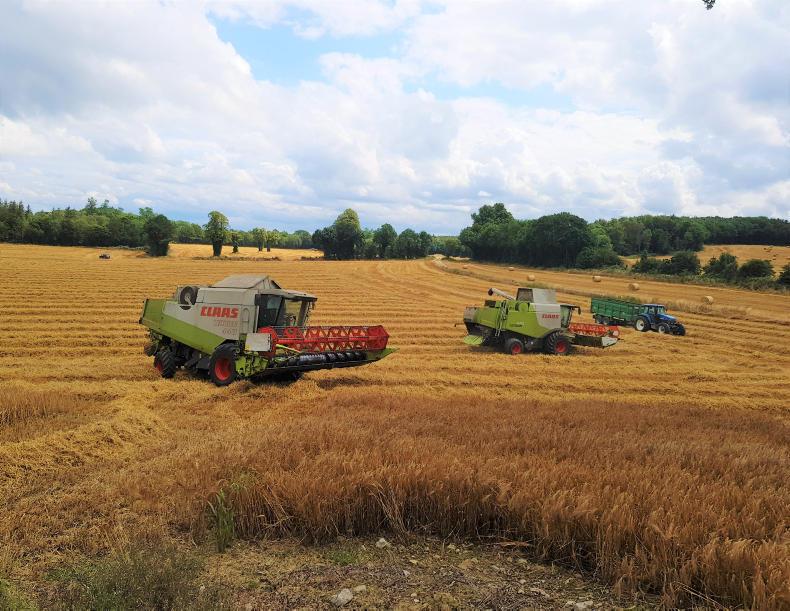
Rob and Billy Coleman harvesting winter barley along with Paddy Daly with their Claas Lexion 440 and 670.
Castlemagner,
Co Cork
Harvest weather has been mixed in Castlemagner, leading to some frustration, particular when trying to bale straw, said Rob. Around 63.8mm of rain has fallen over the past month, 30mm on Monday last. Rainfall isn’t the big challenge, however, rather the lack of good drying spells in the area.
Grain harvesting has been going relatively smoothly as grains are ripe. Most of his crops are coming in between 17.7% and 19%. However, straw from the earlier harvested crops is proving difficult to get dry enough to bale. This has had a knock-on effect in terms of clearing fields for cover crops.
Winter barley yields are ranging from 3-4.2t/ac with average running at around 3.5t/ac. The earlier sown crops appear to have been affected by BYDV, which has had an impact on yield. Rob said crops grown further from a break in the rotation have suffered worse. Specific weights are around average.
Rob grows Belfry and Quadra hybrid barley and both appear to be performing similarly. Around half of what is cut is baled and straw yields are averaging around 10-12 4x4 bales/ac.
Rob generally dries his winter barley down to 15% for storage. His cover crop seed is ready to be sown as soon as the fields are cleared.
His mix will consist of oats and a combination of Crimson and Berseem clover, linseed, fodder rape, leafy turnip, sunflowers or buckwheat.
The crop will be sown with his John Deere 750A no-till drill and he aims to graze the crop with livestock over winter.
He expects the harvest to begin in his early Cellule winter wheat crop by the end of the week. The rest of his wheat should be ready by the following weekend.
His spring barley crops looked backward during May but since then the crop has headed out, and looks like there is the potential for a 3t/ac crop. His spring beans are over 2m in height in places. While there may be a lower number of pods/plant, plant counts are high.
Read more
Listen: impact of GM crops on Canadian agriculture
Big call for plant breeding techniques to be excluded from GMO law

Bad day at the office for Ronan Snow as he repairs the sieves on his John Deere combine this week.
Swords Co Dublin
Ronan completed his winter barley harvest this week having started on 24 July and he is pleased with how his crops have performed. Despite some BYDV pressure, his yields are running from 3.5t/ac to 4t/ac. Other barley crops in the area, however, have suffered significantly from BYDV infection, with yields of 2-2.5t/ac, Ronan said.
He explained that his Cassia crops are coming in at 4t/ac, with Tower at 3.6t/ac. His Carnival yielded 3.5t/ac but recorded a specific weight of 70 KPH. Moisture content is generally coming in at 16% but the straw is taking a couple of days to mature. Straw and grain yields are generally good but this will all be needed. “Between a substantially lower grain price and lower straw prices, we could easily be back up to €300/ac compared to last year,” Ronan said.
His harvest has been relatively smooth so far, with 19.3mm rainfall over the past month. He generally unloads directly into waiting lorries in the field and the grain is brought straight to a Drummonds branch. Ronan’s winter oilseed rape was desiccated with Roundup Max (2kg/ha) on July 15 and he also added in Guardicon pod sticker (1.25l/ha). His winter wheat crops are around two weeks from harvest and have good potential. The timing of the wheat harvest will be on par with average.
Around 25% of his spring barley crops have lodged due to some heavy showers two weekends ago. There are a lot of spring crops lodged in his area. His spring wheat crop received a head spray a number of weeks ago consisting of Amistar Opti (1l/ha) and Fezan (0.8l/ha). Wild oats are also a particular problem this year.
Potato harvest under way
Ronan is digging his Kingsman early potato crop as the market requires them. Tuber numbers are back but are filling well. He notices some scab appearing on his Kerr’s Pink crops, most likely a result of the dry weather. He will wait to see what rain comes this week before deciding whether or not to start irrigating again. Blight pressure is low and he is applying a fungicide every 10 days.

David Moody moving straw this week in Donegal. Around half of his harvested crop is baled.
St Johnston,
Co Donegal
It has been a stop-start harvest so far for David, who started his winter barley harvest on 24 July. Light showers over the past month have amounted to 74mm and have prevented him from getting a good run at the harvest. That said, he should finish the bulk of his winter barley by the end of the week if he gets the right weather window.
Yields have been good, between 3.95t/ac and 4.15t/ac with moistures of between 16% and 19%. Straw yields are reasonable but it is taking up to three days to get the crop fit for baling.
David said he is finishing drying a batch of grain from 17% to 14.5%. His dryer will dry around 5t/hr. He dries around 25% of his barley for storage. This grain is then rolled and bagged over the winter. The remainder of his barley is propcorned. Propcorn rates vary depending on moisture but around 10l/t is applied on crop of 19% moisture content.
Around half of what is harvested is baled. He generally bales an amount of 4x4 round bales with either a McHale F5500 or Welger 235 and 8x3x3 square bales with a Krone 890 baler. Once fields are cleared he generally carries out field maintenance work.
David’s winter wheat harvest is around three weeks away while his winter oats are around two weeks off. His Mascani winter oats were sown at the start of October and have been slow to mature all year.
His spring barley crops are still standing well but there are notable amounts of Ramularia present in the canopy. “All crops got two growth regulation applications and are standing well. We wanted an easy harvest this year for a change” he said.
David added that his spring wheat is also looking very well. The crop received its head spray two weeks ago consisting of Prosaro (0.7l/ha), Bravo (1l/ha) and Combitop (5kg/ha). There was some mildew in the crop both on the stem and leaves so he also included Corbel in the tank in places.

Rob and Billy Coleman harvesting winter barley along with Paddy Daly with their Claas Lexion 440 and 670.
Castlemagner,
Co Cork
Harvest weather has been mixed in Castlemagner, leading to some frustration, particular when trying to bale straw, said Rob. Around 63.8mm of rain has fallen over the past month, 30mm on Monday last. Rainfall isn’t the big challenge, however, rather the lack of good drying spells in the area.
Grain harvesting has been going relatively smoothly as grains are ripe. Most of his crops are coming in between 17.7% and 19%. However, straw from the earlier harvested crops is proving difficult to get dry enough to bale. This has had a knock-on effect in terms of clearing fields for cover crops.
Winter barley yields are ranging from 3-4.2t/ac with average running at around 3.5t/ac. The earlier sown crops appear to have been affected by BYDV, which has had an impact on yield. Rob said crops grown further from a break in the rotation have suffered worse. Specific weights are around average.
Rob grows Belfry and Quadra hybrid barley and both appear to be performing similarly. Around half of what is cut is baled and straw yields are averaging around 10-12 4x4 bales/ac.
Rob generally dries his winter barley down to 15% for storage. His cover crop seed is ready to be sown as soon as the fields are cleared.
His mix will consist of oats and a combination of Crimson and Berseem clover, linseed, fodder rape, leafy turnip, sunflowers or buckwheat.
The crop will be sown with his John Deere 750A no-till drill and he aims to graze the crop with livestock over winter.
He expects the harvest to begin in his early Cellule winter wheat crop by the end of the week. The rest of his wheat should be ready by the following weekend.
His spring barley crops looked backward during May but since then the crop has headed out, and looks like there is the potential for a 3t/ac crop. His spring beans are over 2m in height in places. While there may be a lower number of pods/plant, plant counts are high.
Read more
Listen: impact of GM crops on Canadian agriculture
Big call for plant breeding techniques to be excluded from GMO law







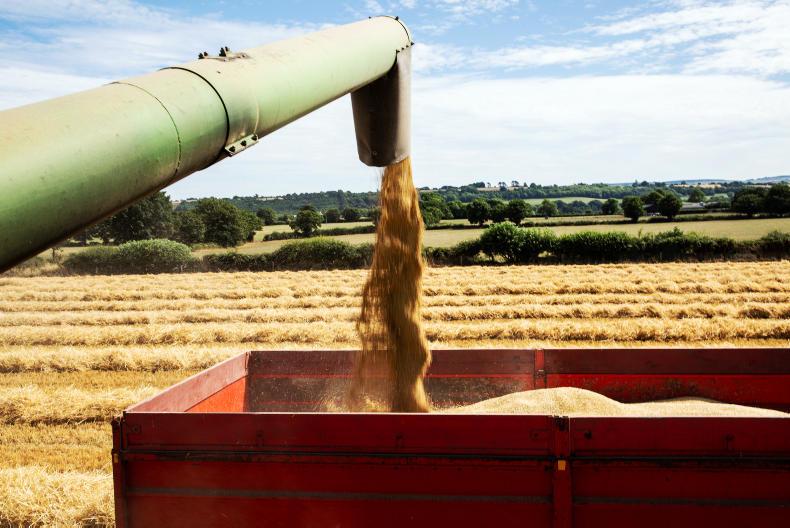
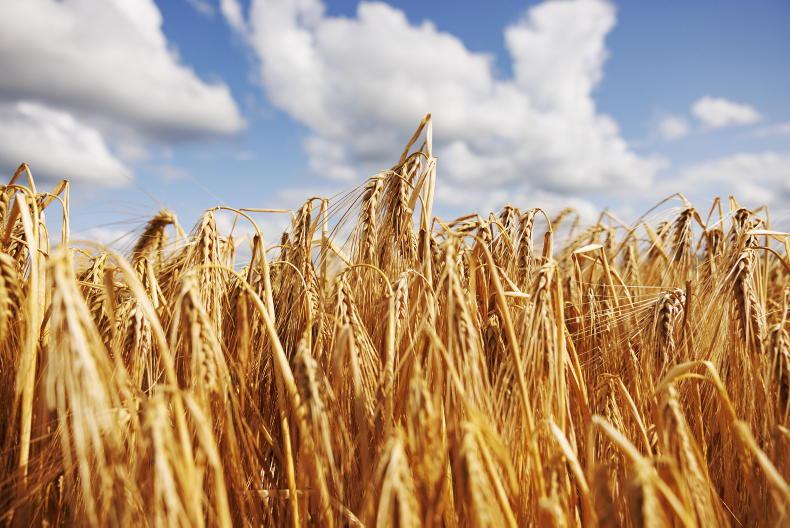

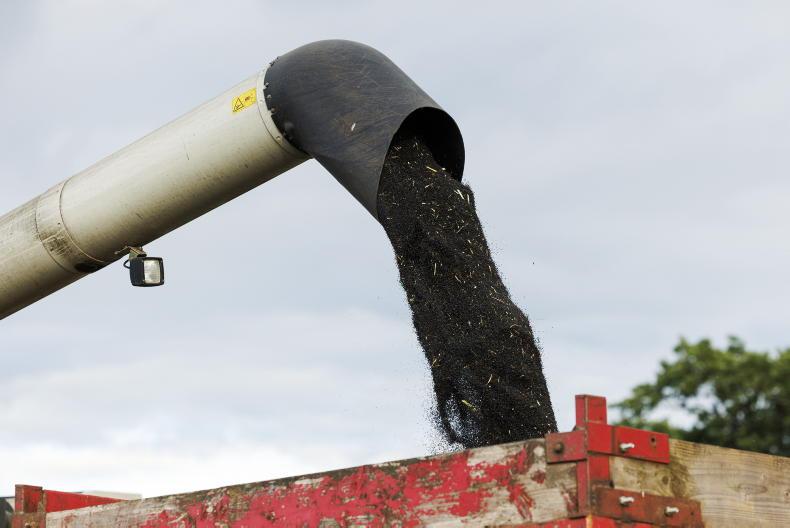
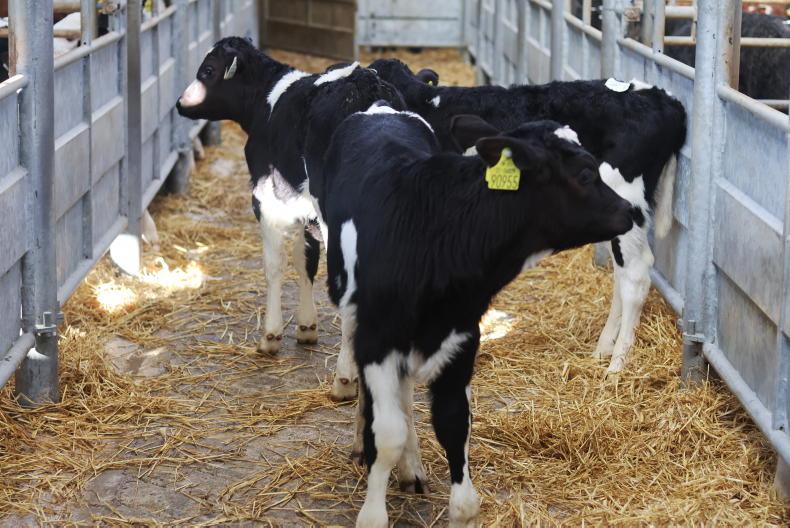

SHARING OPTIONS